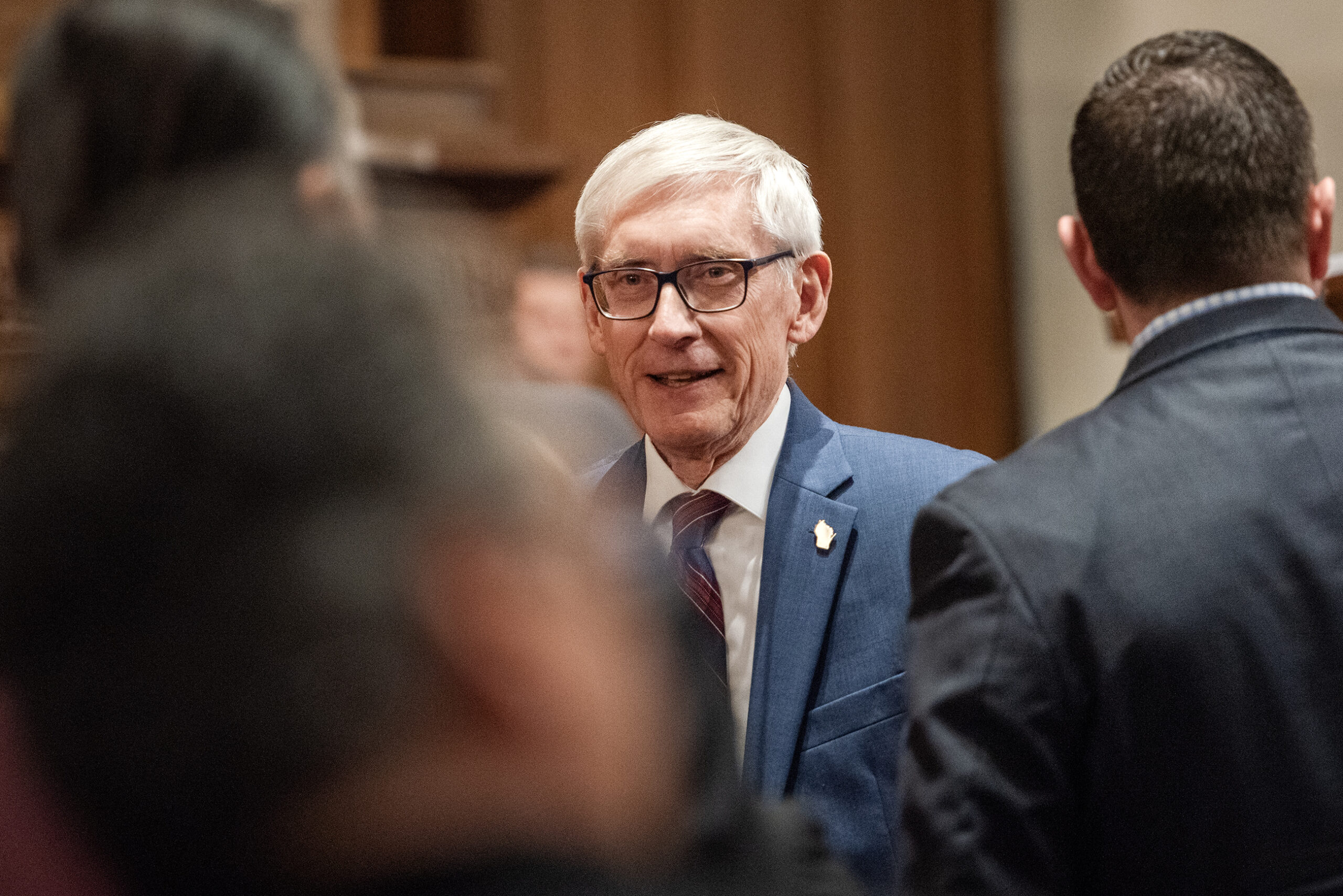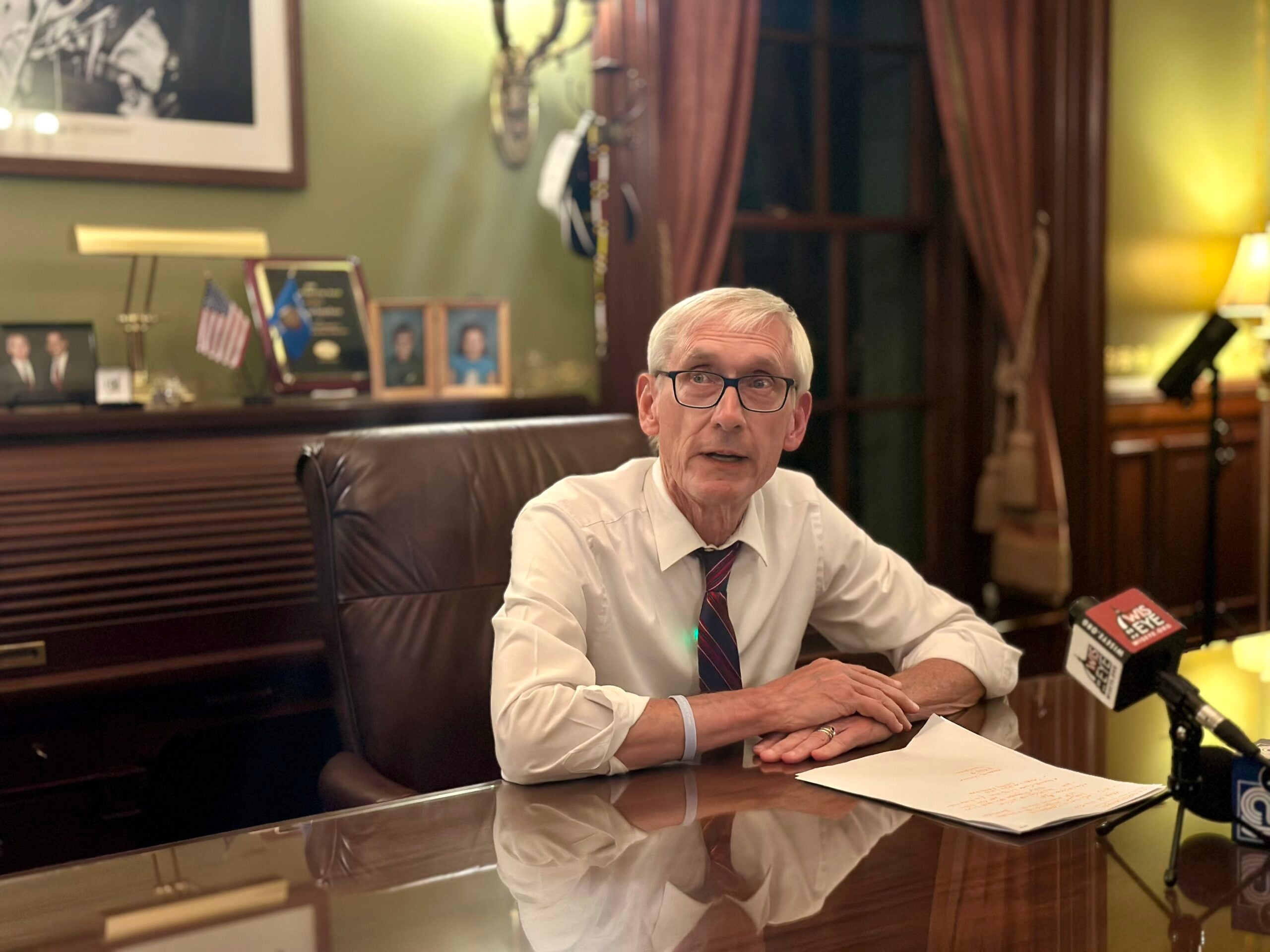When he unveiled his budget proposal Wednesday, Democratic Gov. Tony Evers offered up a long list of ideas for how to spend the state’s record surplus, telling lawmakers he was confident that some of his budget plans would win bipartisan support.
“I know the people in this building might not agree with me on the periphery of every policy all the time. That is democracy, right?” he told the crowd.
But that window for compromise seemed to close quickly. Immediately after his address, Republican leaders said they’d rewrite Evers’ budget from scratch.
News with a little more humanity
WPR’s “Wisconsin Today” newsletter keeps you connected to the state you love without feeling overwhelmed. No paywall. No agenda. No corporate filter.
“His priorities might be in line with where we are on the topics. But the solutions are what’s dramatically different,” said Assembly Speaker Robin Vos, R-Rochester.
Deep partisan divides are a hallmark of Wisconsin politics, said Jason Stein, research director of the Wisconsin Policy Forum.
“In today’s hyper partisan environment, the safe bet is always on no compromise,” Stein told Wisconsin Public Radio. “That being said, there’s probably a better chance of compromise in this budget between the two parties than at any time I’ve seen in at least 10 years.”
Stein says that’s for several reasons. The state has more money in its coffers than ever before with a projected surplus of $7.1 billion. And because Evers is not widely expected to run for a third term, Stein said, Republicans may be less worried about handing him political victories.
The morning after his budget address at a press event in Middleton, Evers pointed to areas that he thought could unite Republicans and Democrats, such as PFAS remediation.
“I think there will be some sort of compromise around PFAS. There has to be,” Evers said.
The devil will be in the details, said Stein. Republicans are unlikely to support a solution that places any kind of mandate on businesses. Evers’ current proposal involves putting millions in state funds toward testing, remediation and establishing new standards.
One area where Republicans and Democrats might find common ground, Stein said, is on the issue of shared revenue for local communities.
Evers has made funding local governments a hallmark of his platform as governor and in his reelection campaign last year. Republicans pushed back on this until recently. They’ve started to signal support for funding certain local priorities, like law enforcement.
“Democrats have always thought it was important to fund local government, and Republicans have been coming around to the idea that, at least the public safety component of local government — which is one of the big things that local government spends money on Wisconsin — is important to fund,” said Stein.
It’ll come down to building compromises, Stein said, which could be as simple as Evers and GOP leaders sitting down together in the same room to discuss priorities.
Evers and Republican leadership rarely met in Evers’ first term. After meeting for the first time in two years in December, Evers and Vos both expressed interest in talking more.
“Let’s start having a conversation,” Evers told reporters on Thursday. “Democracy, I think, kind of demands more than just saying, ‘Well, we don’t like it.’”
Wisconsin Public Radio, © Copyright 2025, Board of Regents of the University of Wisconsin System and Wisconsin Educational Communications Board.






